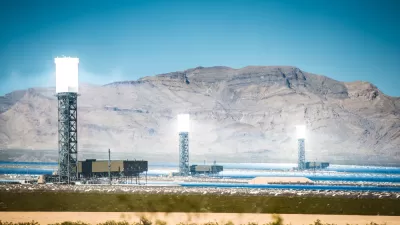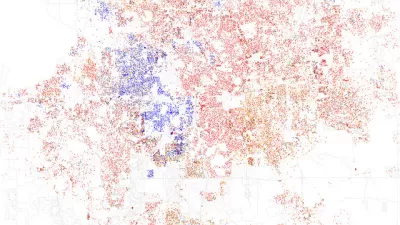A controversial biomass amendment added to the Senate's energy bill would make the burning of wood for energy purposes a renewable source of energy. While the proposal has broad, bipartisan Congressional support, many groups oppose it.

"The proposal not to count carbon from biomass is the work of Maine’s two senators — Susan Collins, a Republican, and Angus King, an independent — who introduced it into the Senate version of the energy bill passed earlier this year," writes Eduardo Porter, Economic Scene columnist for The New York Times.
“Biomass energy is sustainable, responsible, renewable, and economically significant as an energy source, and many states, including Maine, are already relying on biomass to meet their renewable energy goals,” stated Senator Susan Collins in a Feb. 3, 2016 press release on the passage of S.Amdt. 3140 by voice vote.
Opponents to the amendment, which is not in the House version of the energy bill, include public health advocates [PDF] concerned about both criteria pollutants and carbon emissions, scientists concerned with deforestation, as well as many environmental groups.
The amendment "would give a free pass to the biomass industry to pollute by allowing carbon emissions from power plants burning forest biomass - chipped up branches, limbs, and whole trees - to go unregulated, wrote Sami Yassa for the Natural Resources Defense Council. "It would set a dangerous precedent of legislating science by forcing EPA to use fundamentally flawed carbon accounting and would set back our efforts to fight climate change."
In a comparison of biofuel to fossil fuel, a 2010 report even concluded that carbon emissions from biomass would slightly exceed those from coal by 2050, according to the Associated Press.
According to a new analysis by the Partnership for Policy Integrity (PFPI) released Oct. 3, burning wood for electricity will undermine Clean Power Plan, currently in litigation.
According to a model by the Energy Information Administration, if President Obama's Clean Power Plan was allowed to consider biomass, there would be a "rush to build more biomass generators," writes Porter. Under one EIA scenario, "it would require clear-cutting six million to eight million acres of forest," according to PFPI.
"[T]he biomass proposal could become law within weeks," adds Porter. "Even if it fails to make it through, similar language has been attached to appropriations bills for the Interior Department, passed by both chambers and now undergoing reconciliation."
The energy bill, S.2012 - North American Energy Security and Infrastructure Act of 2016, dubbed the Energy Policy Modernization Act, is "the first major update to the nation’s energy policy in eight years," writes Alejandro Dávila Fragoso, climate reporter for Think Progress.
- Think Progress: The Senate Just Passed An Energy Bill That Would Make Forests A ‘Carbon Neutral’ Energy Source, Apr. 20, 2016
- Sen. Susan Collins (R-Me.), press release: Senators Collins-Klobuchar-King Biomass Amendment Passes Senate, Feb. 13, 2016
- Cap-and-Trade Bill Boosts California's Struggling Biomass Facilities, September 5, 2016
- Wood Waste' Power Plant Raises Questions in Texas, August 15, 2008
FULL STORY: Next ‘Renewable Energy’: Burning Forests, if Senators Get Their Way

Planetizen Federal Action Tracker
A weekly monitor of how Trump’s orders and actions are impacting planners and planning in America.

Congressman Proposes Bill to Rename DC Metro “Trump Train”
The Make Autorail Great Again Act would withhold federal funding to the system until the Washington Metropolitan Area Transit Authority (WMATA), rebrands as the Washington Metropolitan Authority for Greater Access (WMAGA).

DARTSpace Platform Streamlines Dallas TOD Application Process
The Dallas transit agency hopes a shorter permitting timeline will boost transit-oriented development around rail stations.

Renters Now Outnumber Homeowners in Over 200 US Suburbs
High housing costs in city centers and the new-found flexibility offered by remote work are pushing more renters to suburban areas.

The Tiny, Adorable $7,000 Car Turning Japan Onto EVs
The single seat Mibot charges from a regular plug as quickly as an iPad, and is about half the price of an average EV.

Supreme Court Ruling in Pipeline Case Guts Federal Environmental Law
The decision limits the scope of a federal law that mandates extensive environmental impact reviews of energy, infrastructure, and transportation projects.
Urban Design for Planners 1: Software Tools
This six-course series explores essential urban design concepts using open source software and equips planners with the tools they need to participate fully in the urban design process.
Planning for Universal Design
Learn the tools for implementing Universal Design in planning regulations.
Municipality of Princeton
Roanoke Valley-Alleghany Regional Commission
City of Mt Shasta
City of Camden Redevelopment Agency
City of Astoria
Transportation Research & Education Center (TREC) at Portland State University
US High Speed Rail Association
City of Camden Redevelopment Agency
Municipality of Princeton (NJ)




























